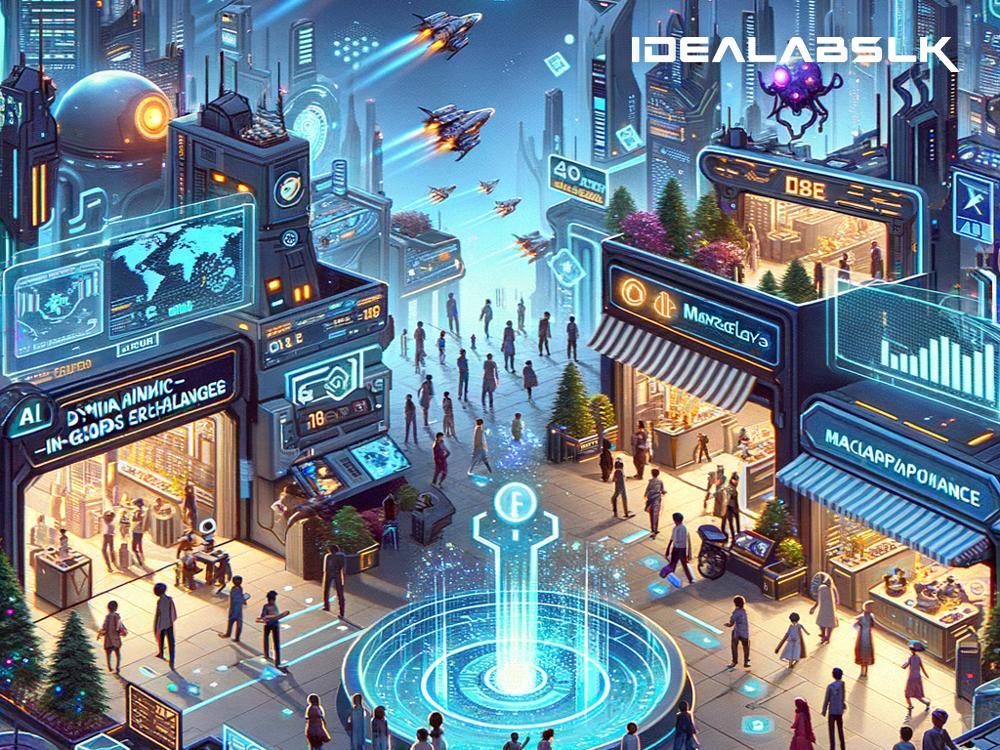How AI Will Transform In-Game Economy Systems by 2025
In the vast and ever-evolving universe of video games, one of the most fascinating advancements we're on the cusp of witnessing is how Artificial Intelligence (AI) is set to overhaul in-game economy systems by 2025. From the gold coins in Super Mario to the sophisticated trade and currency systems in World of Warcraft, in-game economies have been a cornerstone of the gaming experience. But as technology marches forward, AI is poised to take this aspect of gaming into an entirely new dimension.
A Glimpse into the Future of Gaming Economies
Imagine stepping into a game world where every shopkeeper remembers you, prices fluctuate based on supply and demand in real-time, and your actions significantly impact the game's economic landscape. This might sound like a far-fetched dream, but with AI, this level of immersion and dynamism in gaming economies is not just possible; it's on the horizon.
Personalized Shopping Experiences
AI-driven NPCs (Non-Player Characters) are set to revolutionize how we interact with in-game stores and marketplaces. By 2025, expect NPCs to remember your purchasing habits, recommend items based on your gameplay style, and even haggle prices in a more human-like manner. These tailored experiences will make every trip to the in-game store feel unique and engaging.
Dynamic Pricing and In-Game Economies
One of the most groundbreaking changes AI will bring to in-game economies is dynamic pricing. AI can analyze vast amounts of data from the game world in real-time, adjusting prices based on supply, demand, and even player behavior. This means that if a particular item is in high demand but short supply, its price will naturally increase. Similarly, if an item is plentiful but not often purchased, its price could decrease. This dynamic system will add a layer of realism and strategy to in-game economies, making them feel alive.
Impactful Player Actions
In today's games, a player's impact on the in-game economy is often limited. However, by 2025, AI will enable economies that are deeply influenced by player actions. For example, if players over-hunt a specific creature for its valuable loot, that creature could become endangered, making its loot more scarce and valuable. Conversely, if players cultivate and protect certain resources, their abundance could lead to lower prices. This cause-and-effect system will make players think more carefully about their actions within the game world.
Automated Trading and Crafting Systems
AI will also revolutionize how trading and crafting work in games. With smarter AI algorithms, players could set up automated shops that buy low and sell high, or even craft items based on market demands. These systems will allow for a more passive form of income, letting players become moguls of in-game commerce without constantly micromanaging their empires.
Challenges and Ethical Considerations
While the potential for AI-driven game economies is immense, there are also challenges and ethical considerations to address. Balancing these dynamic economies to ensure fairness and prevent exploitation will be crucial. Developers will need to carefully design these systems to avoid unintended consequences, such as in-game inflation or deflation, which could ruin the gameplay experience.
Moreover, the introduction of real money trading (RMT) in these dynamic economies could lead to new forms of exploitation, such as 'gold farming'. Ensuring that these systems are enjoyable and fair for all players will be a top priority.
The Road Ahead
As we look towards 2025, the future of in-game economies shines bright with the promise of AI innovation. These advancements will not only make game worlds more immersive and realistic but also challenge players to think strategically about their economic decisions. While there are hurdles to overcome, the potential for AI to revolutionize in-game economies is a thrilling prospect that could redefine our gaming experiences. So, gear up, gamers; the future of in-game economies is on the horizon, and it's looking more dynamic, interactive, and engaging than ever before.

